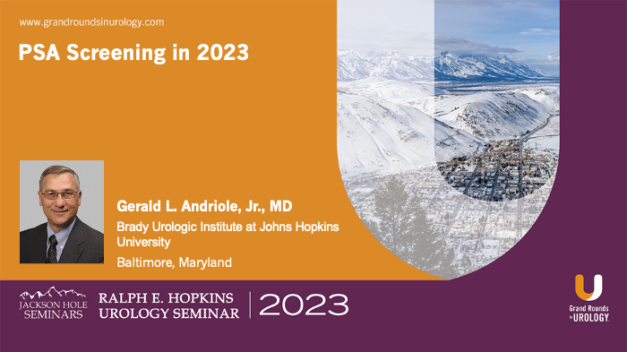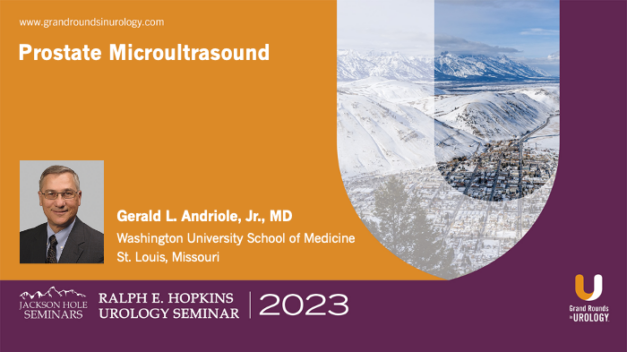Prostate Cancer Screening Update
Gerald L. Andriole, Jr., MD, provides guidance on how urologists can effectively streamline their processes for prostate cancer screening. In his presentation, he discusses five supplemental areas where urologists can improve prostate cancer screening:
Identification of Above Average Risk Patients
Simplification of PSA Guidance for Patients and PCPs
Early Identification of Clinically Significant Prostate Cancer
Reduction of Unnecessary Initial and Repeated Biopsies
Enhanced Risk Stratification
For each area, Dr. Andriole outlines the current standard practice and suggests methods for improvement. To support the suggested methods, he presents data illustrating the method’s outcome for patients and practitioners.
Read More




